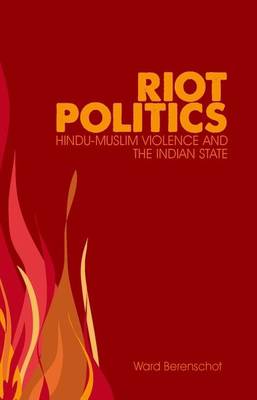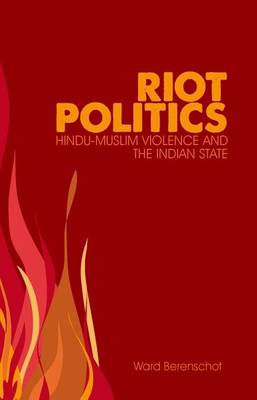
Bedankt voor het vertrouwen het afgelopen jaar! Om jou te bedanken bieden we GRATIS verzending (in België) aan op alles gedurende de hele maand januari.
- Afhalen na 1 uur in een winkel met voorraad
- In januari gratis thuislevering in België
- Ruim aanbod met 7 miljoen producten
Bedankt voor het vertrouwen het afgelopen jaar! Om jou te bedanken bieden we GRATIS verzending (in België) aan op alles gedurende de hele maand januari.
- Afhalen na 1 uur in een winkel met voorraad
- In januari gratis thuislevering in België
- Ruim aanbod met 7 miljoen producten
Zoeken
€ 69,45
+ 138 punten
Uitvoering
Omschrijving
On 27 February 2002 fifty-eight people died when a train coach caught Western India. The incident marked the beginning of one of the worst outbursts of Hindu-Muslim violence since India's independence. As marauding mobs thronged the streets of Gujarat's cities and villages, local and state-level politicians aided and abetted the violence by making inflammatory speeches, distributing weapons and restraining the police--who largely sided with the state's majority Hindu inhabitants--from intervening to stem the bloodshed, which claimed the lives of over two thousand people. Based on an extensive ethnographic study of Gujarat's local politics, Riot Politics offers a novel approach to understanding the processes that foster outbursts of communal violence in India. Berenschot argues that the difficulties that especially poorer citizens face when dealing with state institutions underlie the capacity and interests of political actors to instigate and organise communal violence. As the reader is led into the often shadowy world of local politics in Gujarat, the author reveals how the capacity and willingness of various types of rioters--from politicians, local criminals, Hindu-nationalist activists to neighbourhood leaders and police officials--to organise and perpetrate violence is closely related to the different positions these actors hold in the patronage networks that provide access to state resources.
Specificaties
Betrokkenen
- Auteur(s):
- Uitgeverij:
Inhoud
- Aantal bladzijden:
- 320
- Taal:
- Engels
Eigenschappen
- Productcode (EAN):
- 9780199327331
- Verschijningsdatum:
- 19/07/2011
- Uitvoering:
- Hardcover
- Formaat:
- Genaaid
- Afmetingen:
- 148 mm x 224 mm
- Gewicht:
- 435 g

Alleen bij Standaard Boekhandel
+ 138 punten op je klantenkaart van Standaard Boekhandel
Beoordelingen
We publiceren alleen reviews die voldoen aan de voorwaarden voor reviews. Bekijk onze voorwaarden voor reviews.









